On September 12–13, the Stone Center for Research on Wealth Inequality and Mobility at the University of Chicago hosted an authors’ conference in preparation for an upcoming volume of The ANNALS, tentatively titled Whither Meritocracy? Contributors presented their drafts and responded to questions and feedback from fellow authors and the volume’s special editors, Steven Durlauf and James A. Robinson.
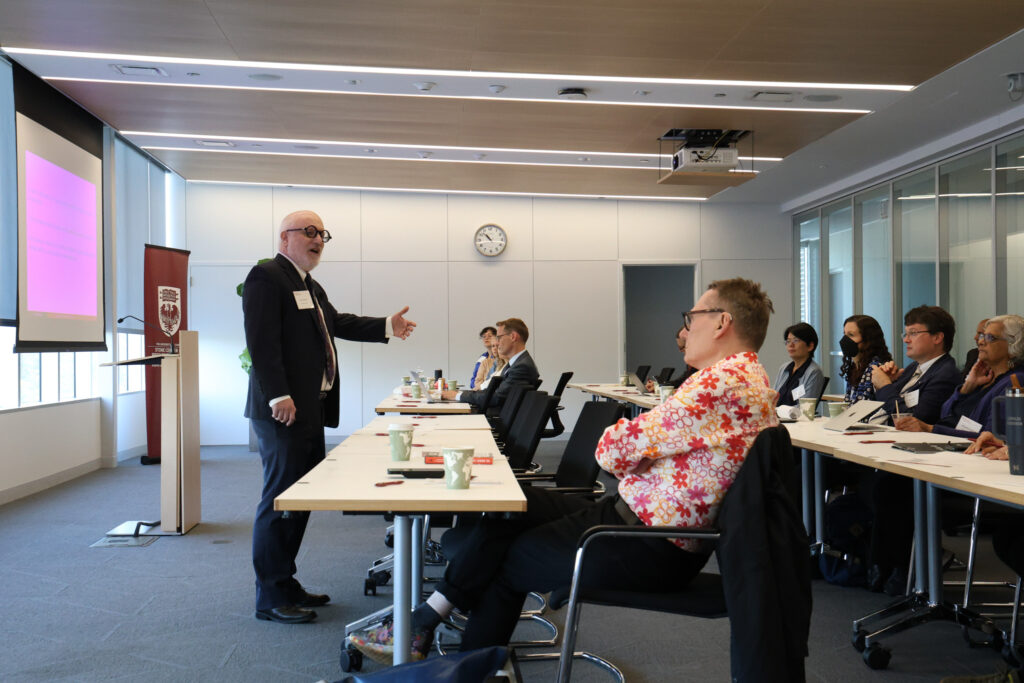
(Photo by Antonina Gray)
The volume is an interdisciplinary collection tackling various dimensions of meritocracy and debates about its effectiveness, including historical and comparative analyses from around the world, examinations of its implementation in higher education and admissions, and the effects of racial and gender differences.
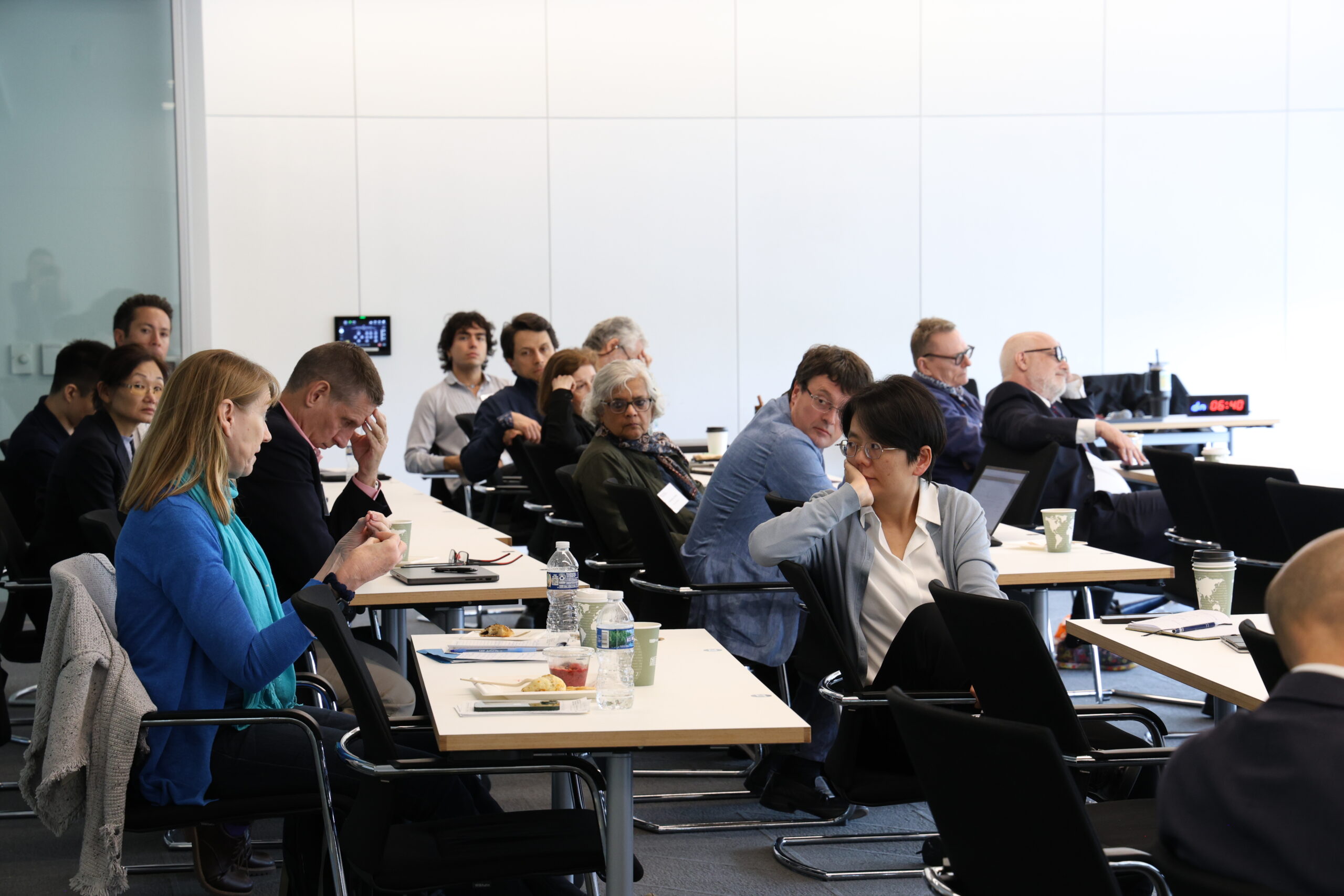
(Photo by Antonina Gray)
In presenting his own contribution to the volume, guest editor Steven Durlauf reflected on the complexities of defining merit and the challenges of creating socially efficient assignment rules. He emphasized the need for a forward-looking, prospective approach to meritocracy and offered a framework to navigate the practical difficulties in implementing it.
I want to put on the table a vision of meritocracy that is explicitly prospective and I want to indicate why it is a very complicated thing to implement. If you ask what you do about that, the answer is not to throw up one’s hands, it is rather to use what is called robust decision theory. In a technical part of this paper, I address the question, how does one make decisions under radically limited information? Without probabilities, there is a different way to think about these problems.
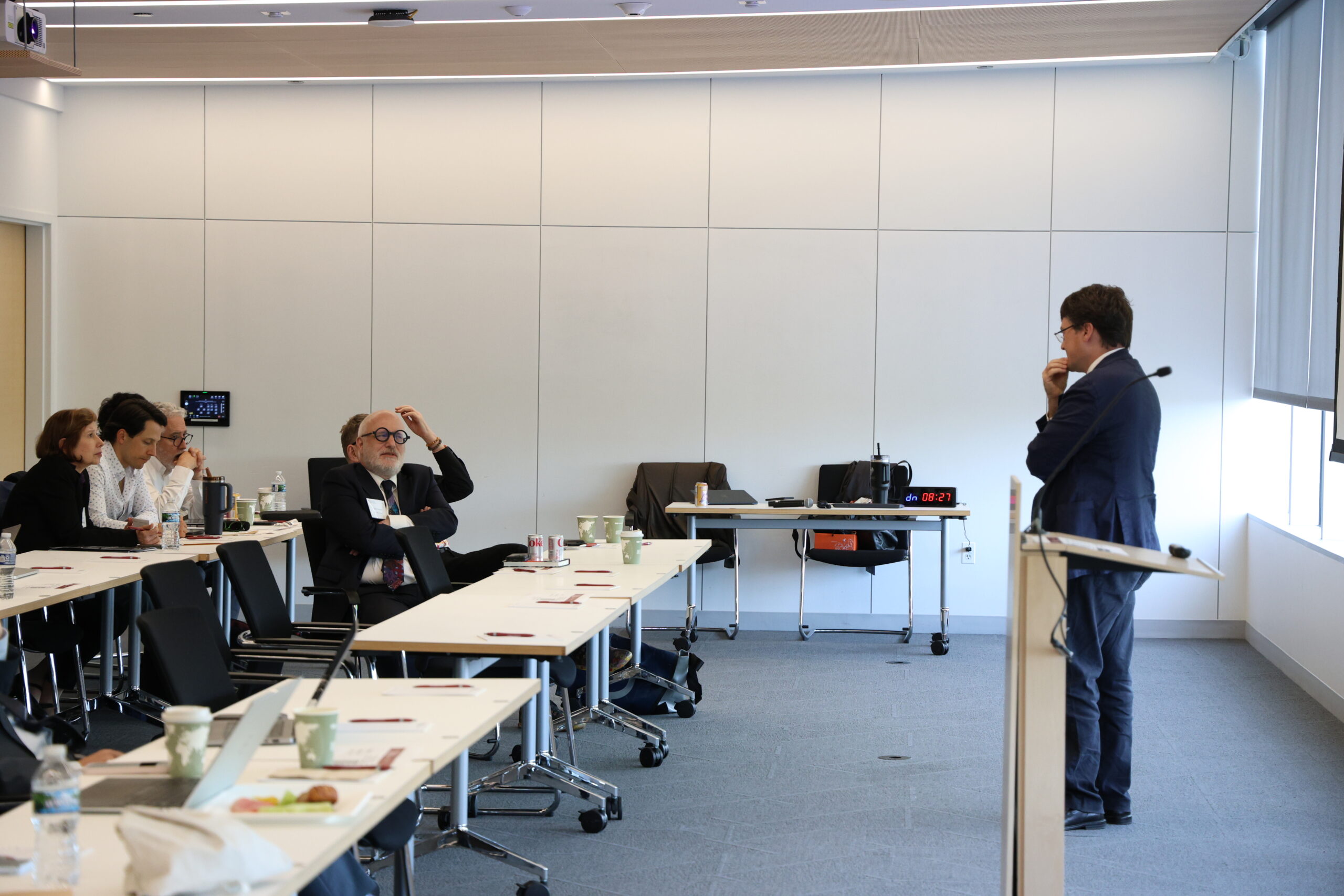
(Photo by Antonina Gray)
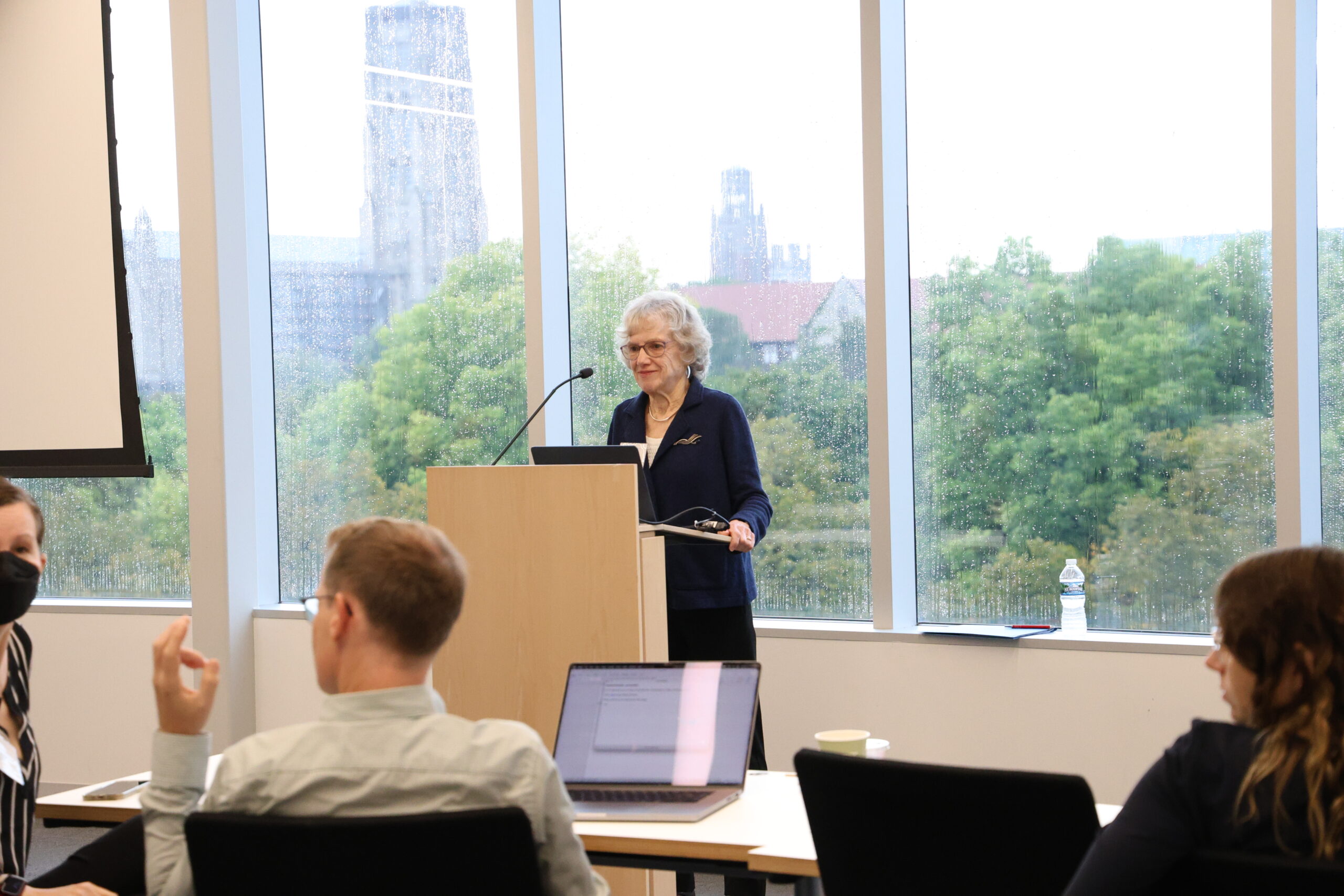
(Photo by Antonina Gray)
Among the volume’s contributing authors are political philosopher Harry Brighouse, legal scholar Daniel Markovits, and sociologist Jake Rosenfeld. Mario Small (a 2020 Fellow of the AAPSS), Rebecca Zwick, and Mary Blair-Loy return to The ANNALS after prior appearances in volume 689, 683, and 596 and 619, respectively.
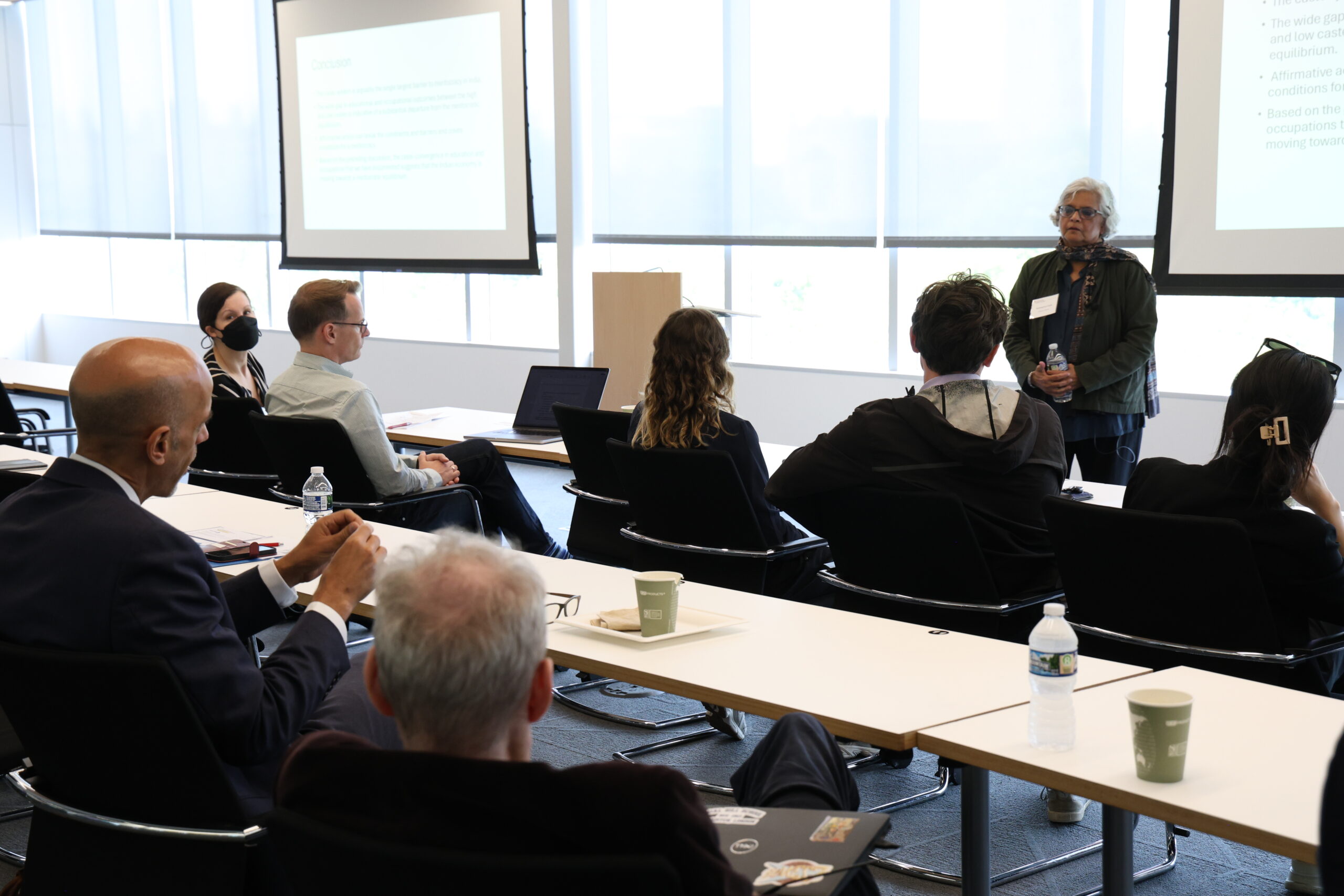
(Photo by Antonina Gray)
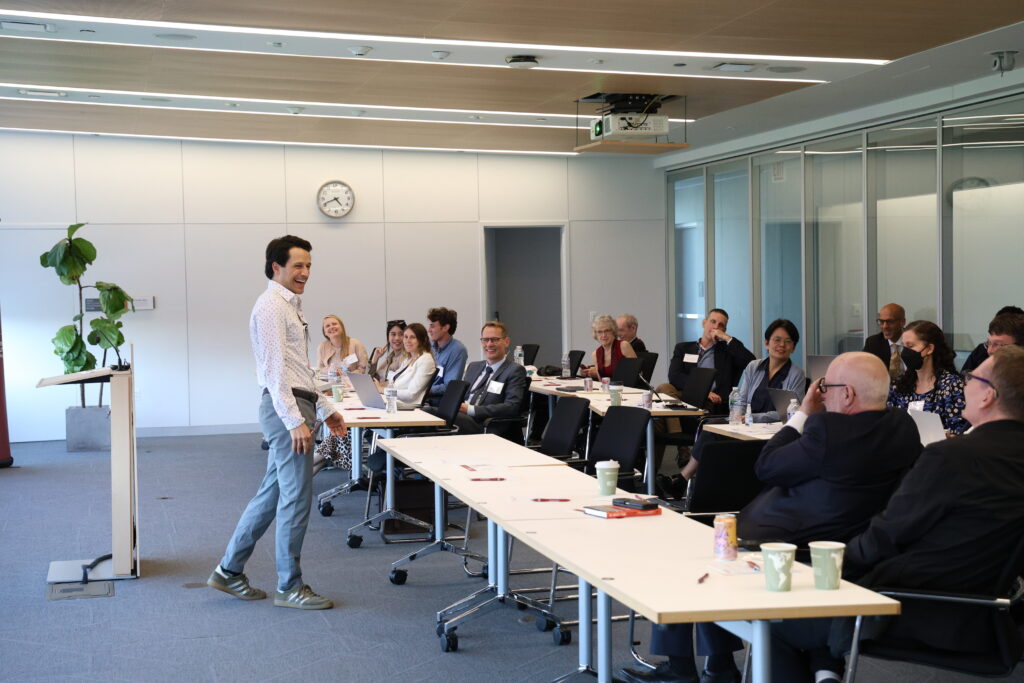
(Photo by Antonina Gray)
Tom Kecskemethy, executive editor of The ANNALS, concluded the event with some brief remarks about the aims and process for the volume. “The papers in this volume will be a rich blend of empirical research and empirically informed reflective essays,” Kecskemethy observed. “The insights from fields as varied as education, economics, philosophy, gender studies, and sociology exemplify the interdisciplinary scholarship that The ANNALS is best known for.”
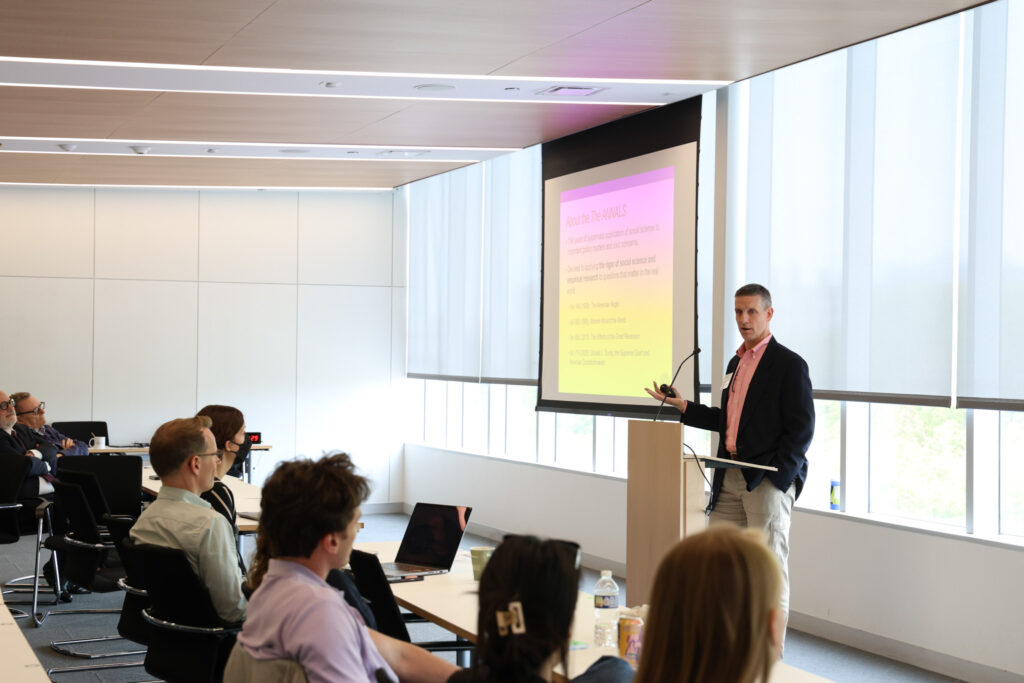
(Photo by Antonina Gray)
The AAPSS would like to thank all of the attendees for their participation and Antonina Gray, assistant director of the Stone Center, for organizing and hosting the conference. The volume is expected to publish in early 2026.

Front row, left to right: Lena Edlund, Agnès van Zanten, Mary Blair-Loy, James Robinson, Steven Durlauf, Rebecca Zwick, Ruixue Jia, Guido Alfani, Bishnupriya Gupta, Kristina Butaeva, Grace Kolavo.
(Photo by Antonina Gray)

